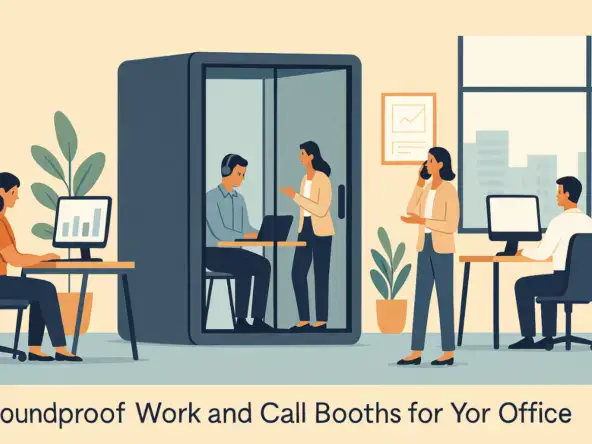 The addition of a home office to your household is a smart decision for many reasons, whether you’ve recently taken the step to start working from home or you just want a functional space where you can continue to work on tasks and projects outside your workplace.
The addition of a home office to your household is a smart decision for many reasons, whether you’ve recently taken the step to start working from home or you just want a functional space where you can continue to work on tasks and projects outside your workplace.
So where to start? You’re likely to face the same challenges that you did with other rooms in your house but some additional hurdles may also make an appearance as you plan the best strategy for your home office.
In order to make the whole business a little more bearable, we’ve put together a checklist for the essentials to consider before you start setting up.
Location
The first important decision you need to make is where your home office will be situated. While some may have the luxury to choose between several rooms, others may be more limited, However, picking the right space is essential in fostering the productivity you require.
Ideally, your office should be a quiet place, away from common areas or children’s playrooms, where noise and distraction could hinder your concentration levels. For those working from home on a full-time basis, it’s even more crucial to pick the right location since you will be spending most of your time here.
Equipment
 If you’re looking to spend long hours in your home office, think about the essentials you will require; your desk, chair, laptop, internet connection, printer and any additional furnishings that are essential to your work.
If you’re looking to spend long hours in your home office, think about the essentials you will require; your desk, chair, laptop, internet connection, printer and any additional furnishings that are essential to your work.
Proper ergonomics will prevent common physical ailments caused by office environments, such as eye and neck strain or carpal tunnel syndrome, for example. A comfortable chair should provide adequate back support; padded swivel chairs with armrests are your best choice as these also come with an adjustable height mechanism.
Investing in the right equipment may be a little costlier but it will definitely be more beneficial in the long run.
Lighting
Your first choice should be to have your office in a place that draws natural light to boost your productivity levels. If this isn’t an option and you’re forced to locate your home office with limited natural lighting, be sure to compensate for it by implementing strong artificial lighting that brightens up the room.
Apart from the general ceiling fixtures, also consider adding some desk lamps and floor lighting to focus light on specific areas. Additionally, consider the position of your PC screen in order to avoid annoying glare.
Be Organised
Just because your office happens to be within your home does not give you the excuse to leave it messy and cluttered! Apart from the fact that it hinders productivity levels, you’ll also likely to waste precious time sifting through the junk in order to find what you need.
Set aside ten minutes each day to get your workspace in order and leave it neat and tidy for the next time you use it. Moreover, remember to clean it just as you would the other areas of your home to keep it fresh and prevent dirt and dust build up.
Additionally, considering appropriate storage options for your home office will help you to keep it organised. Incorporate bookshelves or cabinets to keep all your important work stuff in its place and avoid a messy approach.
Décor
The style of your home office should never be underestimated; especially if you’re using it on a frequent basis, the room’s design should reflect a productive work environment and more importantly, motivate and inspire you to take on your work.
Naturally, your budget will play an important part when considering décor however, there’s no need to fork out big bucks in order to add a splash of style.
Think of things that inspire and soothe you and find a cheap way to incorporate them into your home office. Using bright, bold colours is a great way to increase creativity.
Functionality
 Defining your home office by using it for what it’s actually meant for ie. work, will go a long way to establish boundaries between work and play, which are so difficult to maintain when working from home. Use your home office for work and nothing else in order to stay focused and efficient. Moreover, create and stick to a set number of ‘working hours’ to avoid overworking yourself.
Defining your home office by using it for what it’s actually meant for ie. work, will go a long way to establish boundaries between work and play, which are so difficult to maintain when working from home. Use your home office for work and nothing else in order to stay focused and efficient. Moreover, create and stick to a set number of ‘working hours’ to avoid overworking yourself.
Working from home is becoming more popular in today’s increasingly connected world. Apart from the various benefits a home office can offer, such as fewer distractions and eliminating the commuting time, it can also set you up for the professional success you know you deserve.




